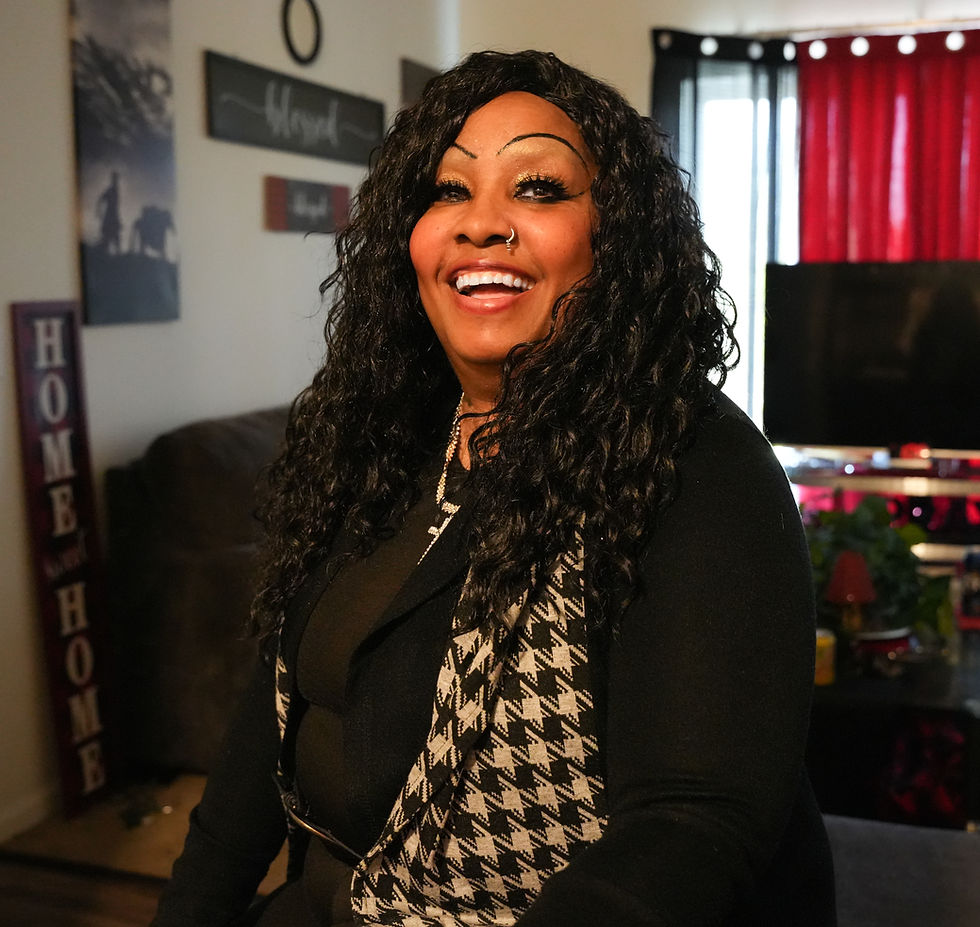Bert Nash Center working to provide more opportunities for housing with supportive services
- Dec 8, 2023
- 4 min read
Updated: Aug 6, 2025

Supportive housing — the provision of housing with supportive services — is an important and necessary component of the city and county’s strategy to significantly reduce homelessness.
“The real human factor of this is when people are homeless and displaced, they don’t have anywhere to belong,” said Mathew Faulk, the Bert Nash Community Mental Health Center’s Housing Director. “As a society we have not created opportunities for them to do something more meaningful, to belong somewhere.”
The Bert Nash Center and other community partners are working to provide more of those opportunities for the unhoused to have a place to belong.
In November, the Affordable Housing Advisory Board voted to recommend funding for four housing projects, including $450,000 for the Bert Nash Center’s permanent supportive and rehabilitative housing project at 2222 W. Sixth St. The City Commission approved the board’s recommendation this week.
Construction of the new supportive housing units is still a way off but plans for such a facility have been in the works for quite a while.
“We’ve been designing this project for three years,” Faulk said.
To realize the project, the Center purchased two connected parcels of land to build 24 units of permanent supportive housing and office space for supportive service staff. The hope is to break ground sometime in 2024 and to possibly open by late fall 2025.
Qualifications for living in the facility are that the resident is assessed as having a severe mental illness, is at least initially a Bert Nash client and willing to receive supportive services, has a significant history of housing instability/homelessness, and qualifies for a Department of Housing and Urban Development (HUD)/Lawrence-Douglas County Housing Authority voucher. Because persons who are registered offenders and who have been charged with manufacturing or distribution of meth cannot qualify for a voucher, households with these types of backgrounds will not qualify to live in this facility.
To date, project funding includes $2 million from Douglas County, $1 million from the City of Lawrence, and $200,000 from the State of Kansas. Construction is projected to cost approximately $11 million. To achieve this, the Center will pursue additional funding sources from the state, HUD, and foundations.
“It’s important for the community to know that if we are going to start substantially reducing the number of people who are homeless and living on our streets and exhibit severe mental health issues, we have to build projects like this,” Faulk said. “This is so important for our community.”
The housing project will be located on McDonald Drive, near the intersection of Iowa and Sixth Streets, at the site of the former Ramada Inn, which was destroyed by fire in January 2018.
“This facility will provide permanent supportive housing,” Faulk said. “The residents can live there indefinitely if they want to. It’s community-based living, just like any other apartment complex. Residents can come and go as they please. There’s no required programming. But all of our supportive housing teams will also be officed in the building. So, it’s housing plus supports. And staff will be assigned to specifically work with the residents.”
In addition to the housing space, which may include 22 single rooms and two two-bedroom units, the lower level will provide space for the Center’s Community Based Services teams, which are currently housed in the Medical Arts Building, a block south of the Bert Nash Center.
“The current space doesn’t accommodate the full teams. This project will be specially designed to accommodate all the supportive service teams currently working out of the Medical Arts Building,” Faulk said.
Besides coordinating with other community partners who are invested in helping the homeless population, the Bert Nash Center is working to provide as many supportive housing opportunities as it can. The 12-bed Transitions supportive housing facility on the Treatment and Recovery Campus of Douglas County opened in March 2021. So far there have been more than 250 referrals to Transitions.
“We’ve served about 125 or so people in that program,” Faulk said.
As an example, Faulk said the Center’s Housing Team recently helped an elderly woman who had lost her home and had nowhere to go. The team connected the woman with an age-based, subsidized housing program where she is currently housed.
Another couple the team recently served included a household member diagnosed with a terminal illness who didn’t have anywhere to go. The team helped the couple get into a Bert Nash Center-leased apartment where they presently reside.
Faulk said his team has helped more than 60 people access housing so far this year. Faulk also oversees the Center’s Homeless Outreach Team, which has served about 400 people so far this year, including about 160 people they have never served before.
“There’s a spectrum of people experiencing homelessness; they’re not all the same,” Faulk said. “Historically, about 20 percent of the population are experiencing a severe, acute problem that will require significant and long-term specialized support to stabilize or recover, and 80 percent are people who will stabilize more quickly with adequate support and opportunity. This facility is targeted for people who fall into the 80 percent and are receiving Bert Nash services, like at Transitions. It won’t be a shelter. They can live there for as long as they want and receive supportive services to help them maintain and be successful.”








